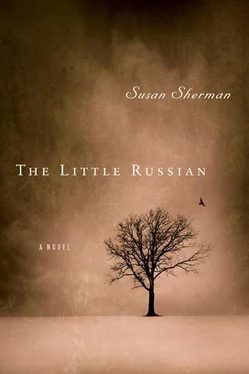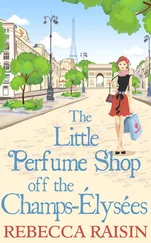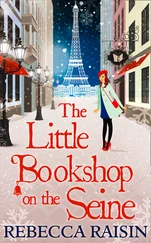“And your parents?” Dmitrievna asked, helping herself to another biscuit.
Berta’s face clouded. She took a sip of her wine and gazed out the window at a passing farmstead where an old man and his wife were wrapping their house in dried corn stalks as insulation against the coming winter. “They’re dead.”
“Oh, how awful. Cholera?”
“Typhus.”
“We had an epidemic a few summers back. Everyone was boiling water and drinking glasses and glasses of beet juice. Fortunately we were all fine. And so that’s why you went to live with your relatives?”
“Yes, they’re my family now.”
“Of course they are, my dear. And a fine family they are.”
Berta’s eyes followed a flock of crows rising up in a cloud above a corn field, their shadows making ominous splotches on the corn below. She drained her wine, sat back, and closed her eyes. In a few minutes her lips felt numb and her limbs relaxed. It wasn’t a bad feeling, considering.
Late that afternoon the train pulled into a station of no consequence and Berta rose and gathered up her things. Her traveling companion was asleep and snoring into a pillow embroidered with the crest of the Southwestern Line. Berta moved about the compartment as quietly as possible, hoping not to wake Aleksandra Dmitrievna. She wanted to avoid the usual hugging and kissing, exchanging of cards and empty promise making that went on even between strangers when a journey had been shared. She wanted to disappear without a trace, perhaps leaving only a faint whiff of perfume behind. But the train came to such a sudden halt that it woke Aleksandra Dmitrievna with a jerk.
After a blank moment she sat up, wiped away a small puddle of drool from her chin, and looked out the window. “Where are we?”
“Mosny.”
She stared out at the dreary station and then noticed that Berta was pulling on her gloves. “You’re getting off here?”
Berta nodded.
Aleksandra Dmitrievna took another look at the station, at the barefoot children selling pastries, at the peasants waiting to board, at the muzhik arguing with the stationmaster over a crate of ducks he was refusing to stow in the luggage compartment, and said nothing. There was also a Jewish couple walking down the length of the train searching in every window for someone they had come to meet. She was a small, birdlike woman wearing a dirty head scarf, a plain blouse, and a dark skirt. He wore a visor cap over his tousled gray hair and black trousers with a bulging waistband where his tallis was tied. When they came to Berta’s window, the woman’s hands flew to her mouth. She elbowed her husband and began to wave excitedly.
“Do you know them?” Aleksandra Dmitrievna asked, looking relieved to be separated from the zhydy by a sturdy pane of glass.
Berta glanced up briefly, shook her head, and returned to her gloves.
“But look, she’s calling your name.”
Berta took another look and this time there was a flicker of recognition. Halfheartedly she waved back. “Oh, that’s Rivke. She keeps our poultry. And that’s her husband. I guess they’ve been sent to meet me.”
“Why does she keep waving like that?”
Berta shrugged. “They’re like children.” She leaned over to kiss Aleksandra Dmitrievna on both cheeks. “Now promise you’ll come to see me. I’ll be back in Moscow by the end of the month. Here’s my card.”
Aleksandra Dmitrievna tucked it into her pocket and eagerly went in search of her own. “Will I meet the Malkiels, do you think?”
“Of course. We’ll have you for tea.”
“You really think so?” she asked, taking out a card from an engraved silver case and handing it to Berta.
“I’m looking forward to it.”
Berta put the card in her just-in-case bag, where she was bound to lose it. Then she gathered up her things and, after one last good-bye, left the compartment. She could’ve gotten off right there, but instead she chose to walk through the train and exit at the other end.
The minute she stepped off she felt the full force of the Little Russian summer. She had forgotten how hot they could be, how they weighted her limbs and made her clothes stick to her body. She had to find a way to cut this visit short. She wouldn’t last a week in this intolerable hell. Looking past the train station to the dusty road, she thought the heat and flies alone would do her in.
There were several porters leaning up against the little station in the shade and several more sitting on a stone ledge that ran around it. They wore scruffy beards, homespun jackets, dirty aprons, and heavy ropes wrapped around their waists. Berta opened her parasol and motioned one over. They had all been eyeing her, hoping for a little business.
“See that Jewish couple standing over there by the first-class carriages ?” she asked, putting a few kopecks in the porter’s palm. “Tell them Berta is here waiting for them at the other end of the train.” He nodded and strode off to do as he was told. She watched while the couple listened to him then turned to search the crowd. When they spotted her the woman came running over, while her husband followed behind at a more measured pace.
“Berta!” she cried, throwing her arms around Berta’s shoulders and holding her tight. “We’ve missed you. Oh, how we’ve missed our Berta.” She kissed her on both cheeks and hugged her again. Then she held her at arm’s length and admired her dress and hair. “Look at her, Chaim. What a lady… what a beauty. I would never have recognized her.”
“You would have recognized her. You would have recognized her anywhere,” said her husband.
“Of course. It’s just that she’s all grown up now and so beautiful. Look at her, such a shainkeit .”
When it was his turn, the man took Berta in his arms and held her close. “I’ve missed you,” he said hoarsely.
I’ve missed you too , she thought, her eyes glistening. He smelled of the grocery, of pickles and axle grease. She could feel his work-roughened hands through the thin muslin of her shirtwaist. She let him hold her a while longer and then gently eased herself free.
“I have a trunk,” she said, searching the platform. “Over there by the bench. Can we get the porter to fetch it?”
“A porter? Listen to her, Chaim. The lady from Moscow. Don’t be silly, we can manage. Come, we have to hurry. Everyone’s coming.”
“Everyone?” swallowed Berta.
“Yes, of course, Sonja Zilberstein, Chaya Krasnoy, Pessele and her daughters, Avrum and Zirele… they all want to see the famous Berta Lorkis home from Moscow.”
“Now?”
“Why not now?”
“But I’m so tired.”
“Tired? A nechtiker tog! What do you have to be tired about? You sat on a train. Come, you’ll eat something, sleep maybe, and then they’ll come. Don’t look so glum. This is a happy time.” She took Berta’s face in her hands.
The man struggled with the heavy trunk and finally got it loaded up on the cart. After they took their seats on the bench, he clicked his tongue and flicked the reins and slowly the horse started up the main road into town. Soon they were passing a parade of familiar landmarks that Berta watched go by with a mixture of nostalgia and disgust. There were crooked lanes that veered off at odd angles where sagging wooden houses seemed to tumble in on each other. There were staircases leading up to precarious iron balconies, a roof that seemed to be melting off its house, windows that didn’t close, and doors that hung askew. Nothing was plumb in Mosny; no angles met; no corners were crisp. The whole town seemed to be made of candle wax, crooked, malleable, and unreliable in the hot sun.
They passed several boarded-up storefronts, the planks looking like patches over empty eye sockets. The tallis weaver ’s shop was gone and so was the candlemaker’s. Berta remembered playing going to America with the cooper’s daughter, and now the cooper’s shop was gone too; only a few rusty barrel hoops were left, half hidden in the tall weeds. Up on Shulgas Street, the street of synagogues, Berta saw the shul klopfer , wearing one large shoe and one small, shuffling along from storefront to dwelling calling the men to afternoon prayers. On a corner three young matrons sat out in front of a secondhand clothing shop. They had placed their chairs up against the building to take advantage of the shade from the overhang. One of them rose involuntarily when she saw Berta coming up the road. They all stared at her. Berta couldn’t blame them. They were dressed in dusty skirts, sweat-stained blouses, and dirty scarves, and here she was in her traveling suit and new straw hat with the green band that perfectly matched her parasol. She leaned forward to get a better look at them as the cart went by. Had they gone swimming together, picked strawberries, gone to the heder, the Jewish elementary school? Several seemed familiar, but it had been nine years since she left and she could not tell.
Читать дальше












